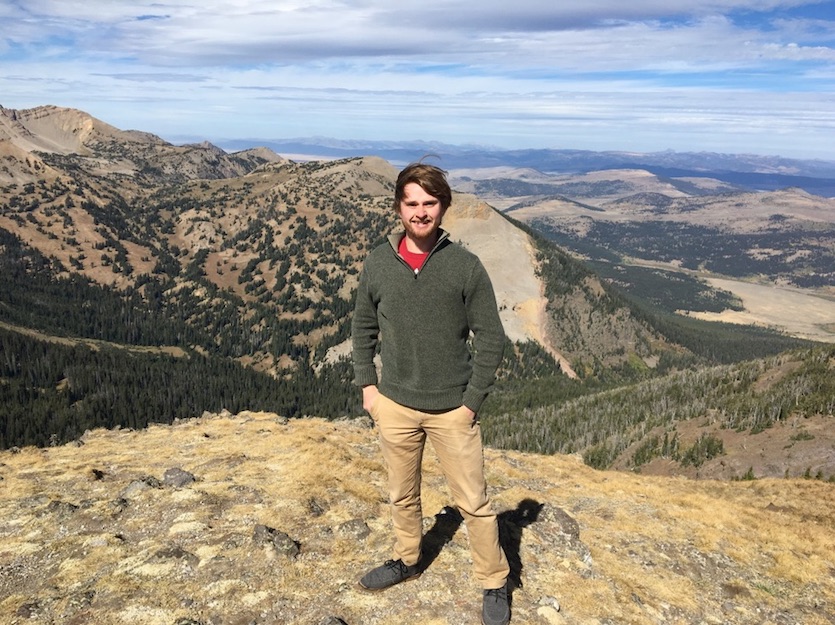ISU Honors Program student Caleb Renner excels at NASA summer internship
October 1, 2018

POCATELLO – Caleb Renner, a junior in the Idaho State University Honors Program, earned a summer internship at the NASA Ames Research Center in California to work on his project titled “Porosity and Permeability of Basaltic Rocks and their Alteration States: Implications for the Habitability of Microbial Life in Volcanic Rocks on Earth and Mars.”
Renner’s internship was with the NASA Biologic Analog Science Associated with Lava Terrains Research Program (BASALT). The program’s goal is to help understand volcanic terrains as analog environments for Mars to enable human and robotic exploration.
Renner had to cut, drill and polish the rocks cores into perfect cylinders. The basalt samples were from Craters of the Moon National Monument and Preserve and The Big Island of Hawaii .
“I worked to determine density and porosity, which is how much air is in a rock, of volcanic rocks to better understand the ability of gases and fluids to permeate through rocks,” said Renner, a geology major who is originally from Inman, Kansas. “The data also showed possible areas of high and low fluid flow.”
If there is a lot of fluid flow, then more nutrients can be carried through the rock to sustain microbial life.
“My data showed a nearly linear trend line for density versus total porosity,” Renner said .
Though Renner’s 10-week internship is concluded, the samples he prepared will be used for other tests.
“The biology side of BASALT will see how my results match up to their dataset, and geochemists will classify state and style,” said Renner. “Data from the geochemists will show whether alteration has a control on rock porosity.”
Once the biologists have looked at the data, they hope to see a relationship between rock texture and microbial habitability.
Renner learned a lot through his NASA internship. His desire to pursue a career in research has been strengthened, as has his desire to learn more about Earth and other planets. It also gave Renner a new perspective on teamwork.
“NASA helped me understand the value of multidisciplinary teams,” said Renner. “With many people with different backgrounds and specializations working on similar problems, unique solutions can be proposed and tested.”
Renner hopes to use the knowledge he gained at NASA as he continues on to graduate school, where he plans on specializing in planetary geology or volcanology.

